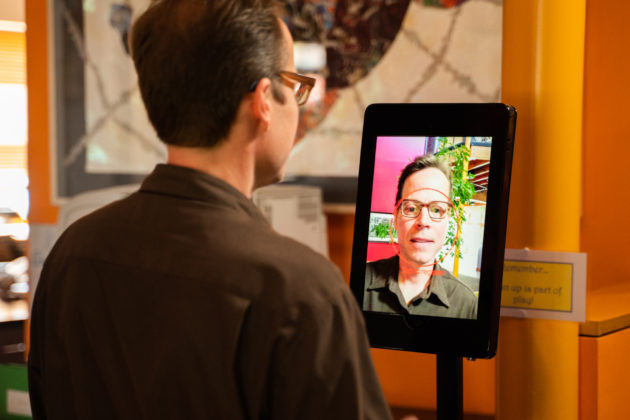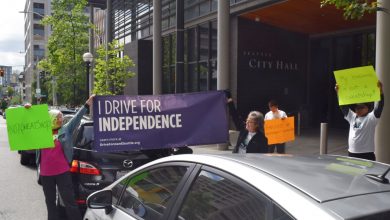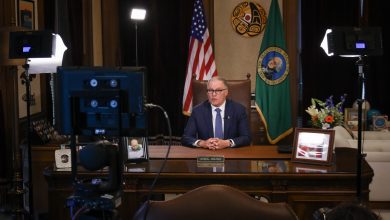Seattle’s King County becomes first U.S. county to ban government use of facial recognition software

In a unanimous vote, the King County Council approved a ban on law enforcement use of facial recognition technology, making it the first county in the nation to put such restrictions into law.
Tuesday’s 9-0 vote prohibits Seattle-area county administrative and executive offices from using facial recognition technology or information to identify suspects or potential suspects. Privacy advocates have sought to ban the use of such technology because of its varied accuracy in identifying suspects, algorithmic racial biases, and perceived encroachment on civil liberties.
“The use of facial recognition technology by government agencies poses distinct threats to our residents, including potential misidentification, bias, and the erosion of our civil liberties,” King County Councilmember Jeanne Kohl-Welles said in a statement.
Kohl-Welles added that facial recognition technology has great potential for misuse. “Our vote today makes King County the first county in the nation to pass this type of ban,” she said.
The ban does not restrict individual cities, citizens, or schools within King County from using facial recognition technology, only official county government offices. And it does not restrict county investigators from trading information with other law enforcement agencies as long as they did not specifically request information gleaned from facial recognition technology.
In all, the legislation approved by the council is “fairly innocuous,” said Os Keyes, a facial recognition expert in the University of Washington’s human-centered design and engineering department.
Keyes praised the legislation as broad enough to help protect civil liberties while being sufficiently narrow that it does not block legitimate investigations. “It doesn’t limit interagency cooperation,” they said, “and it limits general surveillance on a day-to-day basis. It’s thoughtful and short.”
Facial recognition technology — from government-enabled CCTV systems to Amazon’s Rekognition system — has become increasingly controversial as privacy advocates assert it is creating a perpetual surveillance state. Amazon and Microsoft recently renewed their bans on sales of such technology to domestic law enforcement.
Keyes, a doctoral candidate at the university, said the legislation accomplishes two significant things, one obvious and the other less so but equally important.
First, it prevents the county from setting up a facial recognition camera system throughout the county. These are not simply video security systems; they are data gathering systems that interpret, analyze, and store facial data to alert authorities about potential suspects. But the tech is not always accurate, especially when parsing faces with darker complexions.
Second, Keyes said, it helps halt the secret email exchanges between investigators who send photos around for other agencies to run through facial analysis systems for departments that lack the technology or have banned it.
“They have done this in the past to evade the need for a warrant,” Keyes said. “This is not hypothetical; they had long mailing lists to send photos around on an informal basis.”
The use of a private, law enforcement mailing list designed for informal, specific sharing facial recognition tech in Washington state was documented in 2019 by the website OneZero.
The “cross-department requests…includes officers from at least a dozen police departments, from large organizations like the Seattle police and Pierce County Sheriff’s Department to smaller ones like the Richland and Marysville police,” OneZero reported.
Keyes said the new bill should prevent this type of sharing — at least when it comes to King County law enforcement. Moreover, they said, it provides recourse if it continues. “It provides a right-of-action,” they said. “So the person who is surveilled can sue.”
Cities such as Portland and San Francisco have approved such bans. The Washington chapter of the American Civil Liberties Union applauded King County’s new restriction.
“With this vote, King County joins a growing number of local jurisdictions across the nation that have approved similar restrictions,” Jennifer Lee of ACLU Washington said in a statement.
She added: “Now it’s time for a federal ban on government use of facial recognition to ensure that no one’s civil liberties and civil rights are violated by a pervasive and often inaccurate technology that disproportionately misidentifies people of color and heightens the risk of surveillance and deadly encounters with law enforcement in already marginalized and overpoliced communities.”
Conclusion: So above is the Seattle’s King County becomes first U.S. county to ban government use of facial recognition software article. Hopefully with this article you can help you in life, always follow and read our good articles on the website: Ngoinhanho101.com





